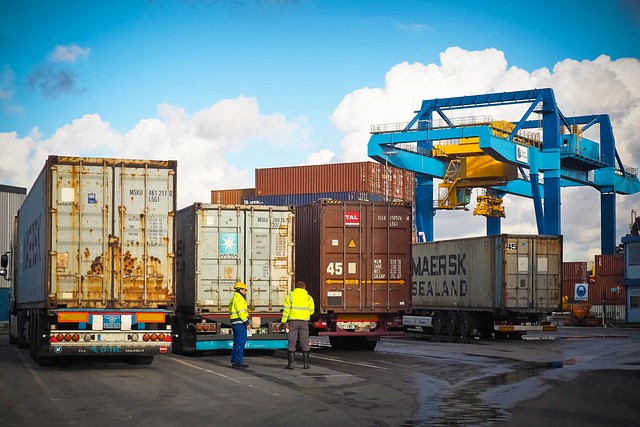After Brexit, the UK has placed a premium on precise translations for customs and trade documents due to the complexities of international commerce. Companies dealing with cross-border transactions must utilize Customs and Trade Documents UK translation services that specialize in trade terminology and customs procedures to navigate language barriers and ensure compliance with both UK and EU regulations. These services are critical for preventing delays, legal issues, or product rejection at borders, and for maintaining a seamless flow of international trade operations. High-quality translations by seasoned translators help mitigate risks, establish trust with partners, and adhere to stringent customs regulations, which is essential for upholding market standing. Businesses must prioritize professional translation support to accurately handle customs filings, including precise Harmonized System codes and accurate values, to facilitate the assessment of duties and taxes, and to identify any prohibited or restricted goods. Engaging with specialized UK translation services that offer expertise in legal and regulatory translations is a prudent investment for firms, ensuring accuracy and compliance in a post-Brexit world where understanding customs documents is paramount.
navigating the complexities of international trade necessitates precise customs filings, a critical aspect being the accuracy of translations in the UK. This article delves into the essential role of translating customs and trade documents to facilitate seamless import and export processes. It provides an overview of the UK’s stringent customs filing requirements, emphasizing the importance of professional translation services for compliance and operational efficiency. Furthermore, it outlines common challenges in document translation and offers best practices for choosing a reliable service provider within the UK context. Understanding these components is key to maintaining legal and procedural integrity in global trade.
- Understanding the Necessity of Accurate Customs and Trade Document Translations in the UK
- Overview of UK Customs Filings Requirements for Import and Export
- The Role of Professional Translation Services in Compliance and Efficiency
- Common Challenges and Pitfalls to Avoid in Customs Document Translation
- Best Practices for Selecting a Reliable Customs and Trade Documents UK Translation Service
Understanding the Necessity of Accurate Customs and Trade Document Translations in the UK

In the complex landscape of international trade, precision in documentation is paramount. The United Kingdom, post-Brexit, has heightened the need for meticulous customs and trade document translations to facilitate smooth commerce across borders. Accurate translations by reputable UK translation services are crucial to ensure compliance with both UK and EU regulations. A single error or misunderstanding in translated documents can lead to costly delays, legal complications, or even the rejection of goods at the border. This underscores the importance of choosing translators with a deep understanding of trade terminology and customs procedures, who can navigate the nuances of language alongside the technicalities of international commerce. Utilising professional UK translation services mitigates risks and fosters trust between trading partners, paving the way for efficient and reliable cross-border transactions. Businesses dealing with import/export activities must prioritise high-quality translations to avoid disruptions, maintain their reputation, and ensure adherence to the stringent requirements of customs regulations.
Overview of UK Customs Filings Requirements for Import and Export

In the context of international trade, understanding the specific requirements for customs filings in the United Kingdom is paramount for both importers and exporters to ensure compliance with local regulations and facilitate efficient cross-border transactions. The UK’s Customs and Trade Documents are critical components in this process, providing the necessary information for customs authorities to assess duties, taxes, and identify any restricted or prohibited goods. Importers must submit detailed declarations that include a comprehensive list of goods, their classification according to the Harmonized System codes, and the associated values for duty purposes. Exporters similarly require accurate documentation to navigate the export process smoothly. For businesses operating within or outside the UK, the use of professional translation services is essential, especially when dealing with non-English documents. These services ensure that all customs forms and trade documents are accurately translated into English, thereby avoiding delays, potential fines, or goods being returned due to miscommunication or errors in documentation. In the UK, translation services specialising in customs and trade documentation can offer expertise that bridges language barriers and ensures clarity in communication with HM Revenue and Customs (HMRC). This attention to detail is crucial for maintaining the integrity of international supply chains and fostering a trusted trading relationship between the UK and its global partners.
The Role of Professional Translation Services in Compliance and Efficiency

Navigating the complexities of international trade requires meticulous attention to detail, particularly when it comes to customs and trade documents in the UK. Professional translation services play a pivotal role in this process, ensuring that all documentation is accurately translated to facilitate seamless transactions across borders. These services are equipped with expert linguists who specialize in legal and financial terminology specific to trade, thereby minimizing the risk of miscommunication or errors that could lead to costly delays or fines. By providing precise translations of customs forms, invoices, and other relevant documents, these translation professionals help companies comply with UK regulations while also enhancing efficiency in their operations. The accurate translation of trade documents not only adheres to legal requirements but also fosters trust between trading partners, which is essential for maintaining long-term business relationships. In the event of discrepancies or questions regarding the documentation, professional translation services can swiftly clarify and correct issues, ensuring that all parties have access to clear and accurate information. This level of precision is indispensable in the context of UK customs filings, where even minor errors can lead to complications in trade. Thus, leveraging the expertise of specialized translation services is a strategic investment for companies dealing with international trade, safeguarding their operations from potential disruptions and ensuring full compliance with all necessary legal standards.
Common Challenges and Pitfalls to Avoid in Customs Document Translation

Navigating the intricacies of customs filings in the UK necessitates precise and accurate translations of trade documents to ensure compliance with regulations. One of the common challenges faced by businesses is the complexity of language variations within the UK itself, given its diverse linguistic landscape post-Brexit. Translators must be adept at understanding both EU regulations and the specific legal requirements of the UK’s Customs and Trade Documents UK translation services must account for nuances that could affect the classification of goods, tariff application, and the overall clearance process.
To avoid pitfalls in customs document translation, it is crucial to engage with professionals who specialize in legal and regulatory translations. These experts not only possess a thorough grasp of linguistic subtleties but also stay updated with the evolving trade policies that influence customs procedures. Common pitfalls include mistranslations of technical terms, which can lead to delays or misclassification of goods, and omission of critical information due to cultural differences in how data is presented. Utilizing reputable Customs and Trade Documents UK translation services can mitigate these risks by ensuring that translators are well-versed in the necessary legal frameworks and have the expertise to handle the specific technicalities involved in customs documentation.
Best Practices for Selecting a Reliable Customs and Trade Documents UK Translation Service

When engaging a customs and trade documents UK translation service, it is imperative to prioritize accuracy and expertise to navigate the complex regulatory landscape. The United Kingdom’s departure from the European Union has underscored the need for precise translations of customs documentation to ensure compliance with new trade agreements and regulations. A reliable service will employ native-speaking linguists who specialize in legal and customs terminology, ensuring that all nuances and specific jargon are correctly interpreted and translated. This is crucial for avoiding delays or misunderstandings at the border, which can have significant financial and logistical implications.
Moreover, a trusted translation service should be able to demonstrate a track record of experience in this specialized field. They must be well-versed in the procedural requirements of both importing into and exporting from the UK, offering translations that not only convey the meaning accurately but also adhere to the legal and formal standards expected by customs authorities. Look for services that offer a certificate of accuracy or are accredited by relevant industry bodies, as these certifications can provide an additional layer of assurance regarding the quality of their work. By choosing a service with these attributes, businesses can enhance their operational efficiency and reduce the risk of costly errors in their customs and trade documentation.
In conclusion, navigating the complexities of international trade necessitates meticulous attention to customs and trade documents’ translations in the UK. Accuracy and compliance are paramount to avoid delays and ensure smooth operations. Professional translation services specialising in Customs and Trade Documents UK play a pivotal role in this process, offering expertise that transcends linguistic boundaries. By adhering to best practices when selecting such services, businesses can safeguard their international trade endeavours against common challenges and pitfalls. With the right support, companies can maintain clarity and efficiency within UK customs filings, thereby fostering a robust trade infrastructure.



